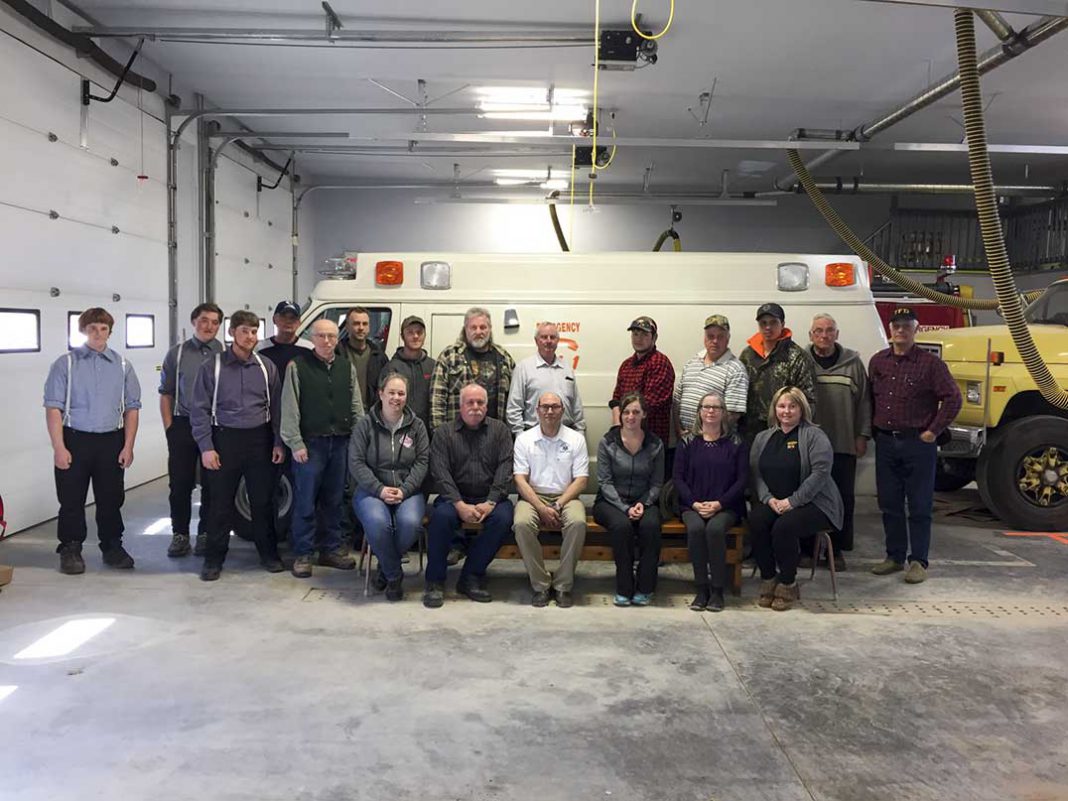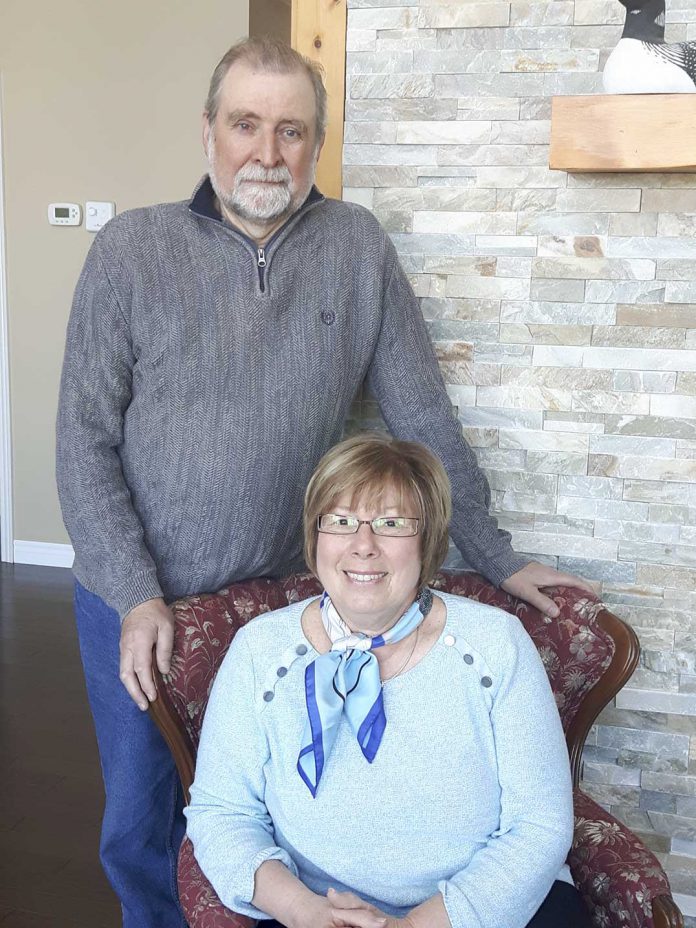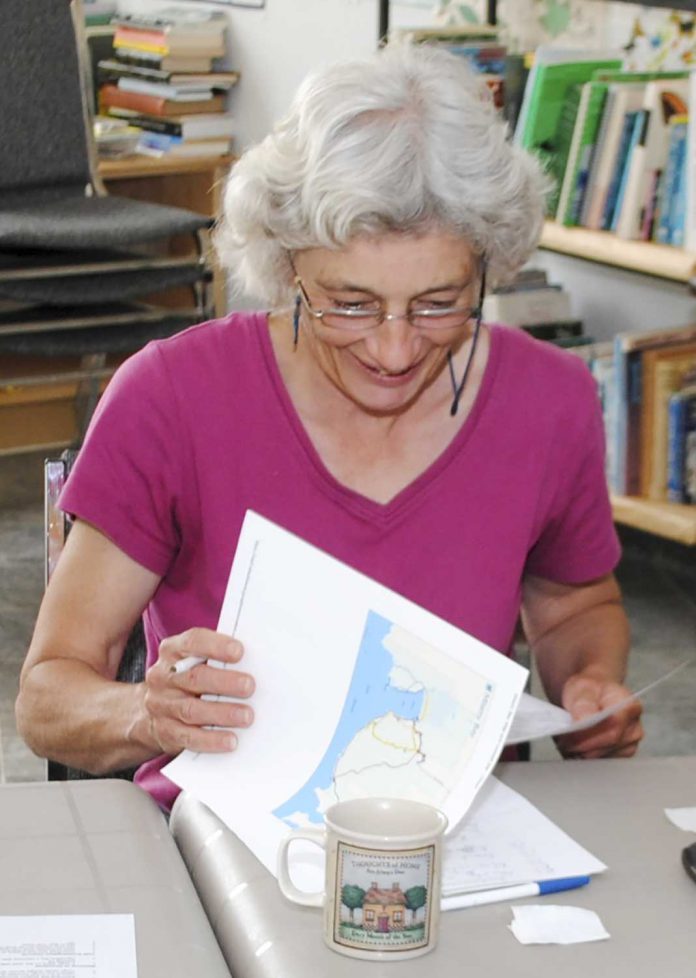TEHKUMMAH––The Tehkummah First Response team has been active for nearly 40 years. They are currently one of two teams on Manitoulin, the other being Cockburn Island. A first responder is a person with specialized training who is among the first to arrive and provide assistance at the scene of an emergency, such as at an accident or medical emergency.
In Tehkummah, the wait for an ambulance can be up to an hour, depending on where EMS units are located on the Island at time of the call and that’s why first responders are so important. “We’re dealing with people’s health and it’s usually critical,” said volunteer Gary Brown. “Often it’s a Code Four call. That means life threatening. We have bandages, splints. We get the person ready for the ambulance, basically keep them alive.”
Mr. Brown has been a first responder for more than 35 years. Initially he took the training but held back from joining the team. He was a member of the fire department, however, and on one occasion he ended up on a call that no one else could get to. Following that incident, he enrolled in refresher training and officially joined the team. It’s not an easy volunteer role. The calls come from people in their own community, people they know. “Maybe 75 percent of the calls are people we know,” Mr. Brown said. “Even the tourists. We know many of them. It’s the type of volunteering that can keep you up at night.”
In an average year there are 45 to 50 calls for service with two or three of these calls to the ferry docks in South Baymouth, mainly due to slips and falls, heart attacks and seasickness mainly, according to Mr. Brown. The unit has an automated external defibrillator (AED) that is kept on board the van. It is well utilized. “I’ve used it three times on people myself,” said Mr. Brown.
Farmer Lyle Gordon is responsible for the van. “He brings the truck and the gear,” Mr. Brown said. “He’s always available.”
Mr. Gordon is the longest serving Tehkummah first responder. He’s in his 41st year with the fire department and only a couple of years less as a first responder. The Dodge van is the third or fourth vehicle the unit has used. It’s close to 20 years old, “but there’s nothing wrong with it,” assures Mr. Gordon. Volunteering for this kind of work is just “something you do. People need you,” he said. “You don’t think about it. You just go.”
John McNaughton is also a farmer and first responder. He was on the team for 15 years previously and after a few years break he has upgraded his training and is just waiting for Tehkummah Township council to approve his return. “I’ve always felt a strong need to look after my community. If you look after your community, your community looks after you,” he said. He acknowledges that people are leading busier lives which can make it more challenging to obtain volunteers. “Not everybody is willing to put the time in,” he said. “I feel like I can do that.”
Jack Greenway is deputy fire chief with the Tehkummah Fire Department and has also been a first responder since his family moved back to the Island five years ago. He too feels a desire to serve the community. “You need to be well trained when people are depending on you,” he said. Mr. Greenway sailed as a Great Lakes captain and has always had first aid training but not at the same intensive level. “Out on the ships we were on our own,” he explained. “We had to respond to injuries. I was also trained in marine fire fighting. The training came with the marine career,” he explained.
Because of its nature, first response calls are confidential, so there’s no overt reward. “When we respond to a call, whatever that is stays with the household,” Mr. Greenway said. “The reward is being able to help people. By doing what you do, you help their health and improve their chances of recovery.
“It’s great working with the team that we have here,” he continued. “Everybody is certainly dedicated. We understand the importance and value we offer to people in our community. We’re kind of the end of the street down here. People feel a sigh of relief when they see us coming, when we walk through the door. That’s rewarding as well.”
Mr. McNaughton finds the group camaraderie appealing and especially helpful in difficult situations. “The job is more challenging all the time, because of the level of knowledge they expect you to have,” Mr. McNaughton said.
Training is intensive: 40 hours for the initial certification with refresher certification every three years thereafter. Training is done either with the first responder team or in conjunction with the fire department’s three hours practice every two weeks.
There are quite a few young people on the team, explained Mr. Brown. “It’s up to us old guys to train the young ones,” he said. “If you’ve done it as long as I have, you’d find that being involved and talking to members provides a form of soulful healing. You can’t go home and talk about what you’ve done, so sharing with other first responders is the only way to stay sane.”





